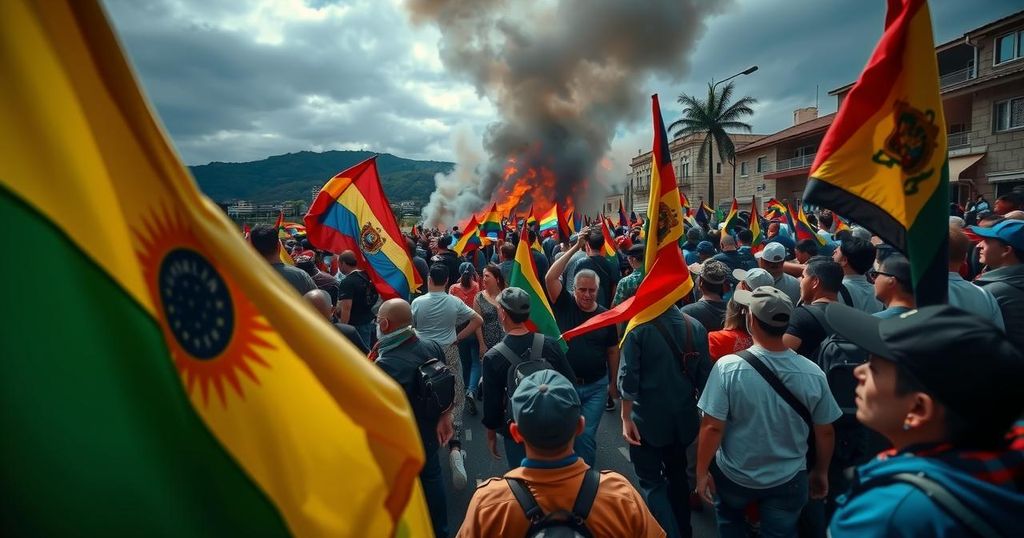Bolivia is embroiled in political strife as President Luis Arce and former leader Evo Morales vie for control of their party, MAS. This conflict has led to major protests, road blockades, and a decline in Morales’ popularity since allegations of election fraud in 2019. The situation may open avenues for opposition forces as economic challenges loom, even as Morales’ strategies risk alienating his traditional supporters.
The political landscape in Bolivia has entered a period of upheaval as the conflict between current President Luis Arce and former President Evo Morales intensifies. Arce, who was once Morales’ protégé, is facing significant pressure from Morales, who has mobilized protests and orchestrated road blockades across major routes. These demonstrations have escalated to the point of using explosives against riot police and temporarily detaining military officers. Morales is also alleging that there was an assassination attempt on him, claims which the government firmly denies. This rift within the Movimiento al Socialismo (MAS) party is significant, as control over the party is critical leading up to the elections in August 2025. Morales, who was a dominant figure in Bolivian politics since the 1990s and served as president for 14 years, is witnessing a decline in his influence. Allegations of election fraud in 2019 resulted in his resignation and subsequent exile; yet his return initiated a bitter rivalry with Arce, characterized by mutual accusations and protests. The recent demonstrations reflect Morales’ diminished power. The Bolivian police, backed by military support, have effectively ended two major blockades, though protests continue in regions closely tied to Morales’ coca production interests. In an effort to gain leverage, Morales resorted to a hunger strike, demanding dialogue with the government about economic recovery and addressing his legal troubles, though he ultimately suspended the hunger strike and blockades when the government rejected his demands. Morales now risks alienating his traditional support base among lower-income groups, which could have implications for future elections. Conversely, his weakened state, combined with internal turmoil in MAS and the low popularity of President Arce, presents a potential opportunity for opposition forces to emerge, despite the multitude of challenges that lay ahead for any non-MAS administration. The economic situation remains dire, with soaring poverty rates and a multitude of social issues.
The political crisis in Bolivia involves a power struggle within the MAS party, highlighted by tensions between President Luis Arce and former President Evo Morales. Morales, who has held significant influence in Bolivian politics for years, faces a profound shift in dynamics following his resignation amidst allegations of election fraud in 2019. Arce’s administration, tasked with addressing economic fallout from the pandemic, has introduced a contentious rivalry with Morales, leading to widespread protests and unrest in the nation. As Bolivia approaches the 2025 elections, these developments could potentially reshape the political fabric of the country.
The ongoing political turmoil in Bolivia signifies a crucial shift in power dynamics within the ruling MAS party, highlighting the waning influence of Evo Morales amid rising tensions with President Luis Arce. As Morales employs protests and blockades to assert his position, the country faces significant economic challenges that any potential opposition government would need to address. The current crisis offers a window for political change, which, if navigated judiciously, could enhance Bolivia’s democratic processes and address pressing social and environmental issues.
Original Source: www.americasquarterly.org






